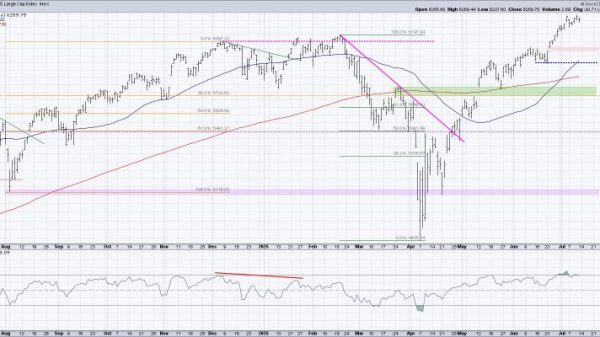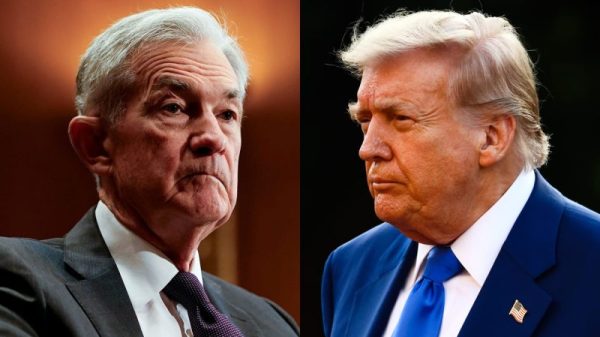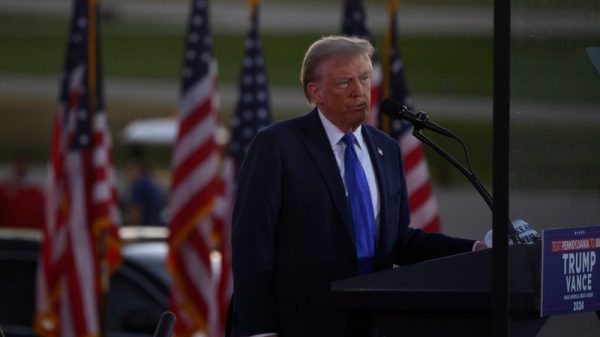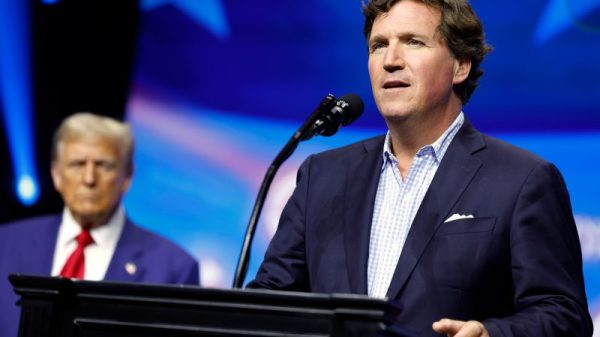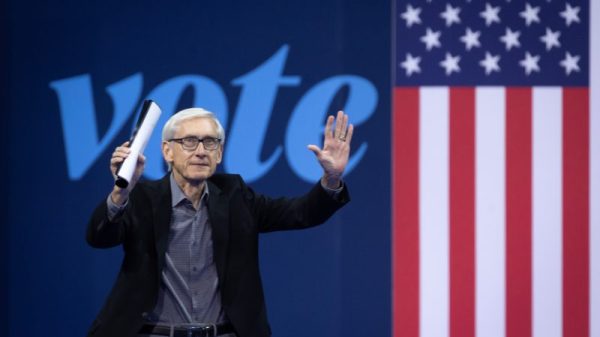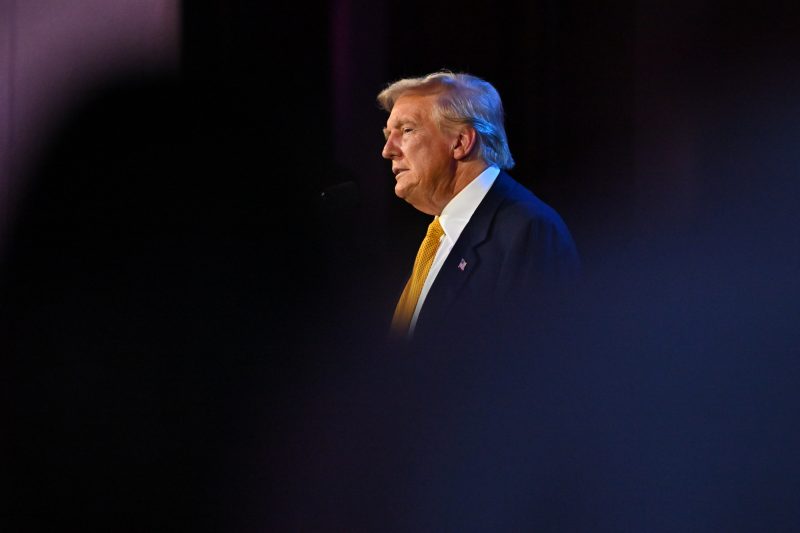Donald Trump’s plan to make thousands of federal employees more like at-will political appointees poses a particular risk to the prime duty of government — national security.
That was the message from a Senate hearing last week into the Republican presidential nominee’s intention to undercut the federal civil service by reinstating a new category of federal employment, known as Schedule F. It would remove job protections from certain employees that prevent them from being fired for political or other inappropriate reasons.
Trump imposed Schedule F near the end of his presidency, without time to implement it. Then, two days after President Joe Biden took office, he reversed Trump’ executive order, saying it “undermined the foundations of the civil service and its merit system principles.”
Curiously, no Republican at the hearing spoke or defended Trump’s proposal, which is item No. 1 on his “Plan to Dismantle the Deep State.” Republicans on the committee did not respond to questions. The Trump campaign did not respond directly to questions about the hearing but pointed to the plan on his Agenda47 platform.
“I will immediately re-issue my 2020 Executive Order restoring the President’s authority to remove rogue bureaucrats,” he said in a platform video. “And I will wield that power very aggressively.”
That plan and comments by Trump and Sen. JD Vance (R-Ohio), the GOP vice-presidential nominee, would hit civil service protections for many in the 2.2 million federal civilian workforce. When Vance first ran for the Senate in 2021, he described his personnel management policy as “fire every single mid-level bureaucrat, every civil servant in the administrative state. Replace them with our people.”
The potential impact of replacing civil servants with “our people,” partisan loyalists, would disproportionally strike national security agencies that employ about 70 percent of federal employees.
A federal regulation issued in April, however, prevents an exception designed for political appointees to federal employment rules “from being misapplied to career civil servants,” according to the Office of Personnel Management. Yet, a second Trump administration could revoke that regulation if it reinstated Schedule F, though that’s a complicated process.
Sen. Gary Peters (D-Mich.), chairman of the Senate Homeland Security and Governmental Affairs Committee, told the hearing that Trump’s plan “to replace at least 50,000 nonpartisan career civil servants with appointees” beholden to him “would weaken our national security and make us vulnerable to serious threats that continually face our nation. More than 70 percent of the federal workforce serves in defense and national security agencies.” Trump’s plan, Peters added, “would hit hardest where the stakes are the highest.”
Trump seems to agree on that last point.
“We will clean out all of the corrupt actors in our National Security and Intelligence apparatus, and there are plenty of them,” he said in the video. “The departments and agencies that have been weaponized will be completely overhauled so that faceless bureaucrats will never again be able to target and persecute conservatives, Christians, or the left’s political enemies, which they’re doing now at a level that nobody can believe even possible.”
The civil service protections his proposal would damage were designed to root out political patronage corruption. The protections prevent politicians from firing federal employees for political reasons, such as perceived disloyalty to a political party or president. While civil servants are charged with carrying out the policies of elected officials, they are required to do so equitably for everyone, on a nonpartisan basis.
While Trump’s platform says “firing underperforming employees … is often completely impossible,” and other nonpartisan experts advocate a more efficient, less time-consuming system, the main beneficiaries of civil service protections are not individual workers. It is the public that primarily benefits from the impartial provision of public services, instead of a system biased in favor of partisan supporters.
Also, as Peters and witnesses noted, the federal government already is overrun with political appointees. Almost no one thinks more is better, except Trump.
“Increasing the number of appointments by the president or the president’s political leaders isn’t even in the best interest of the political party in power, at that time,” Peters argued. “Modern presidential administrations, they already struggle to fill nearly 4,000 appointments across the government, each term. And increasing that number by 50,000 employees would hinder any president’s agenda even further and, likely, lead to vacant jobs and disruptions to government services for much of that administration.”
Furthermore, hearing witness Jenny Mattingley, a vice president of the good-government group Partnership for Public Service, said “many new administrations face significant national security challenges, early into their first year in office. Having nonpartisan career professionals who serve across administrations in place ready to provide the expertise and deal with these challenges is necessary to our country’s safety and security, particularly when a president doesn’t yet have a political team in place.”
Another consideration is Schedule F’s potential impact on federal whistleblowers. They now have tools to fight retaliation against them from supervisors for disclosing government waste, fraud and abuse.
“Schedule F would turn the Whistleblower Protection Act into a bad joke,” said Tom Devine, legal director of the nonprofit Government Accountability Project.
Rather than spending time and money creating Schedule F, “let’s use that same effort to systemically fix hiring and performance management in the federal workforce,” suggested Elaine C. Duke, former deputy acting secretary of the Department of Homeland Security. Trump’s plan, she said, “does not add anything to performance management except at-will termination.”








